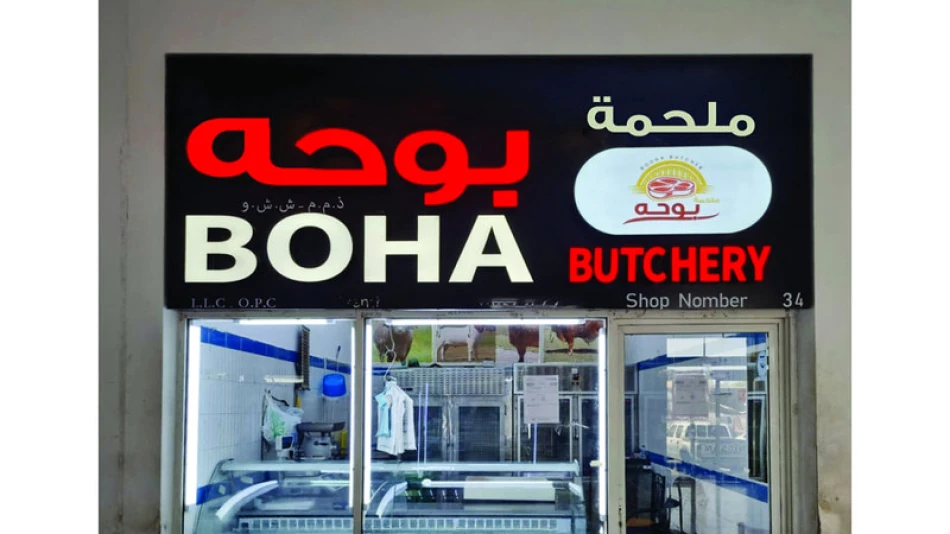
Abu Dhabi's 'Booheh Butchery' Shuttered by Food Safety Authorities
Abu Dhabi Shuts Down Butcher Shop Over Repeated Food Safety Violations
The Abu Dhabi Agriculture and Food Safety Authority has ordered the immediate closure of Malhamat Bouha LLC, a butcher shop in Zayed Port, following repeated violations of food safety regulations that posed risks to public health. The administrative shutdown highlights the emirate's increasingly stringent approach to food safety enforcement as it seeks to maintain its reputation as a global business hub.
Enforcement Action Reflects Zero-Tolerance Policy
The closure order against the establishment, which holds commercial license CN-5225559, was issued under Abu Dhabi's Food Law No. 2 of 2008 and its implementing regulations. According to the authority's food control report, the business repeatedly failed to implement effective corrective measures despite previous warnings.
The administrative closure will remain in effect until the establishment fully addresses all violations and demonstrates compliance with food safety requirements. Only then will the business be permitted to resume operations, signaling that authorities are taking a firm stance against non-compliant food establishments.
Strategic Focus on Consumer Protection
This enforcement action forms part of Abu Dhabi's broader strategy to strengthen its food safety ecosystem through regular inspections and proactive consumer protection measures. The approach aligns with the emirate's vision to maintain international standards across all sectors, particularly as it positions itself as a premier destination for international business and tourism.
Systematic Inspection Framework
The authority has implemented a comprehensive inspection regime that subjects all food establishments to regular monitoring. This systematic approach ensures continuous compliance with safety standards and enables early detection of potential risks before they can harm consumers.
Regional Context and Implications
Abu Dhabi's rigorous food safety enforcement mirrors similar initiatives across the Gulf region, where governments are prioritizing consumer protection as part of their economic diversification strategies. The UAE's food safety standards have increasingly aligned with international best practices, supporting the country's ambitions to become a regional food security hub.
For businesses operating in Abu Dhabi's food sector, this closure serves as a clear reminder that regulatory compliance is not optional. The authority's willingness to shut down non-compliant establishments, regardless of their commercial impact, demonstrates that public health considerations take precedence over business interests.
The incident also underscores the importance of implementing robust internal compliance systems, as repeated violations can result in significant business disruption and reputational damage in an increasingly competitive market.
Most Viewed News

 Sara Khaled
Sara Khaled






